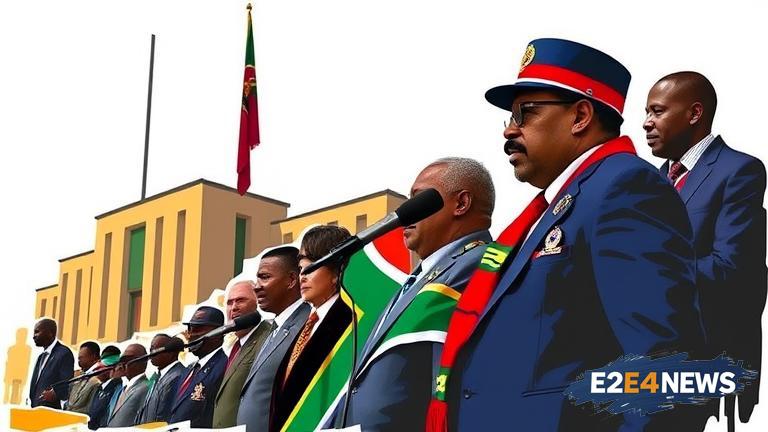The Economic Freedom Fighters (EFF) in Gauteng has made a formal demand for the African National Congress (ANC) to reimburse the City of Ekurhuleni for the use of municipal facilities during its recent National Executive Committee (NEC) meeting. The EFF argues that the ANC’s usage of these facilities constitutes an unauthorized appropriation of public resources for private political purposes. This move by the EFF is seen as a challenge to the ANC’s practices and an attempt to hold the party accountable for its actions. The City of Ekurhuleni, being a municipal entity, is funded by taxpayers, and the EFF contends that the ANC’s use of its facilities without payment is a misappropriation of public funds. The EFF’s demand is based on the principle that political parties should not benefit from public resources without contributing financially. The ANC’s NEC meeting, which was held in Ekurhuleni, is a significant event for the party, where key decisions are made regarding its policies and leadership. By using municipal facilities, the ANC was able to reduce its costs associated with hosting such a large and important meeting. However, the EFF believes that this comes at the expense of the taxpayers of Ekurhuleni, who indirectly subsidized the ANC’s event. The EFF’s stance on this matter reflects its commitment to fighting against the perceived abuse of power and resources by the ANC. The party has been vocal about issues of corruption and mismanagement within the ANC-led government. This demand for reimbursement is part of the EFF’s broader strategy to challenge the ANC’s dominance and to promote transparency and accountability in government. The ANC has not yet responded to the EFF’s demand, but it is likely that the party will argue that its use of the facilities was legitimate and did not incur significant costs to the municipality. The matter may escalate into a political standoff between the two parties, with the EFF potentially seeking legal action if its demand is not met. The use of municipal facilities by political parties for their events is a common practice in South Africa, but it is subject to regulations and requirements, including the payment of fees. The EFF’s action could set a precedent for how political parties are expected to conduct themselves when using public facilities. The City of Ekurhuleni, as the owner of the facilities, is in a position to clarify its policy on the use of its facilities by political parties and to disclose any agreements or arrangements it may have with the ANC. The EFF’s demand has sparked debate about the relationship between political parties and public resources, with some arguing that parties should be allowed to use municipal facilities as part of their democratic rights, while others see it as an abuse of power. The outcome of this matter will be closely watched, as it could have implications for political parties’ access to public facilities and their financial obligations. In the context of South African politics, this issue highlights the tensions between different parties and their competing interests. The EFF, as a opposition party, is seeking to capitalize on any perceived wrongdoing by the ANC to gain political mileage. The ANC, on the other hand, is likely to defend its actions as legitimate and necessary for its political activities. The demand for reimbursement also raises questions about the management of public resources and the role of political parties in South African democracy. As the matter unfolds, it will be important to consider the legal, political, and social implications of the EFF’s demand and the ANC’s response. The public’s perception of the parties involved will also be a significant factor, as voters may view the EFF’s actions as a principled stand against corruption or as a political maneuver. Ultimately, the resolution of this issue will depend on the actions of the parties involved, the response of the City of Ekurhuleni, and the legal framework governing the use of public facilities by political parties.





